TLDR: Lobbying is like chess for businesses. They use resources and negotiation tactics to influence politicians and shape policies in their favor.
Warm-up: What does this Cartoon about Lobbying suggest?
Let’s delve into the different stakeholders and the behind-the-scenes of the whole process: the intricacies of lobbying, its pros and cons, its ethics and its significance for everyone in the Economic Symbiosis.
Lobbying isn't just about powerful people in a room making deals and shaping the world. It's a challenging and unpredictable profession with a short lifespan. However, the impact of a lobbyist's work can endure for a long time. Policy decisions rarely change quickly, and their economic implications leave lasting effects.
Behind the scenes, lobbyists are the individuals or groups who advocate for specific interests or causes by influencing government officials and policymakers. They navigate the complex world of politics, wielding their expertise and persuasive skills to shape policies that can have far-reaching consequences.
While some perceive lobbying as purely self-serving, there is another side to this practice.
The Firms
Why do firms engage in lobbying despite the significant costs and time involved? The main motivation is influence.
Various "interested parties," such as firms, organizations, and influential groups, desire decisions that benefit their interests. These can range from advocating for more regulations to limit market entry for competitors, to seeking fewer regulations that facilitate business operations and increase profitability.
The lobbying objectives differ across industries. For instance, the tobacco industry engages in extensive lobbying to deregulate advertising and reduce tax burdens, enabling cigarette manufacturers to promote their products and sell at lower prices.
In addition to the immediate benefits of influencing policy decisions, lobbying helps firms establish contacts and networks within the government. These connections keep them informed about future plans and policy developments, enabling firms to prepare in advance.
Have a look at these examples:
Big Pharma: lobbying is used to shape drug regulations, aiming to streamline the approval process for new medications or extend patent protections.
Renewable energy sector: firms lobby for favorable incentives and subsidies to encourage the adoption of clean energy technologies, benefiting their businesses.
Big Tech: This infographic shows how lobbying expenditure compares among big tech firms recently, charting the increases from 2020 to 2021.
The costs and ethics of Lobbying
Lobbying entails financial costs, as obtaining information and access does not come cheap. The resources allocated to lobbying could have been invested in improving products, increasing advertising efforts, conducting research, or expanding business operations.
Moreover, the uncertainty surrounding lobbying is a challenge. Lobbyists interact with human politicians, whose allegiances can shift unpredictably, rendering the entire lobbying endeavor futile. Furthermore, lobbying itself carries a stigma. Firms that influence decisions to favor their own interests may be perceived as lacking reliability and trustworthiness.
The People
The true impact of lobbying is felt by the people. While lobbying for improved patent laws and intellectual property rights can eventually benefit consumers by ensuring reliability and quality, the majority of lobbying efforts are focused on deregulation, which can lead to the establishment of monopolies or the evasion of ethical obligations.
The financial sector, known for its substantial lobbying expenditures, heavily advocates for policies related to insurance, interest rates, and taxes, directly affecting consumers in areas that extend beyond the finance industry.
Let's delve into the economics behind this phenomenon. If a firm anticipates a $60 million profit from a specific regulatory change, it would be willing to spend, for instance, $40 million to lobby for it. However, this particular change may only result in a mere $2 reduction in individual consumer welfare. On the other hand, influencing policymakers in the opposite direction would require coordinated efforts from over 20 million people. The level of cooperation necessary for such an endeavor demands significant effort, which appears daunting compared to the minimal impact of $2 on an individual.
Consider the telecommunications industry as well. Major telecom companies spend substantial amounts on lobbying to advocate for deregulation. Studies show that increased consolidation resulting from such lobbying efforts can lead to a 15% increase in prices for internet and mobile services. This means that consumers may end up paying an additional $20 per month for their internet or mobile plans due to the influence of lobbying.
In another example, lobbying by certain food production corporations seeks relaxed regulations on labeling requirements. Research indicates that such lobbying can have a detrimental impact on consumer health and safety. For instance, a study found that approximately 60% of food products labeled as "all-natural" or "organic" did not meet the required standards.
This misleading labeling, facilitated by lobbying efforts, can leave consumers unknowingly exposed to potentially harmful ingredients or practices.
To lobby or not to lobby?
"Money is power, and lobbying is the tool to wield it effectively." - Warren Buffett
The future of lobbying is likely to continue, as it plays a significant role in influencing policy decisions and shaping regulations. Lobbying has become deeply entrenched within political systems worldwide, and it is supported by the financial resources and interests of corporations, organizations, and other influential groups.
Ultimately, whether lobbying remains a prominent force in politics will depend on societal attitudes, political will, and the effectiveness of potential reforms. While its face might change, it will remain one of the many shadowed blades that corporations use to wield influence.

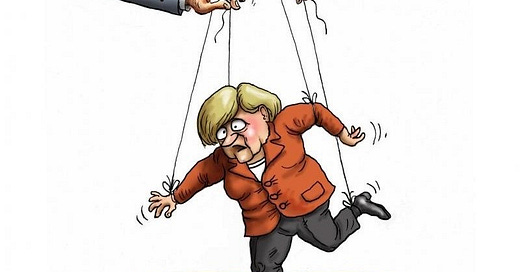



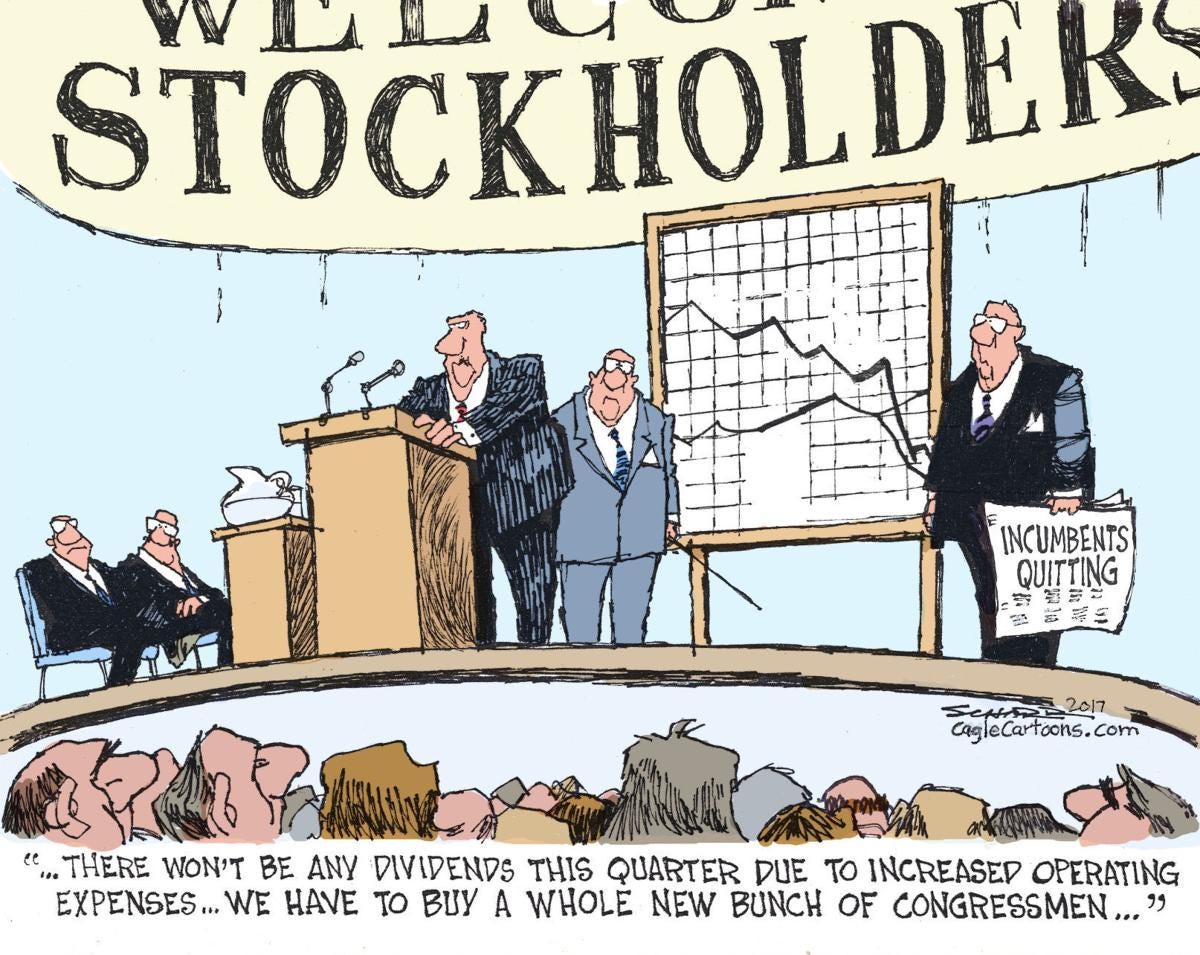
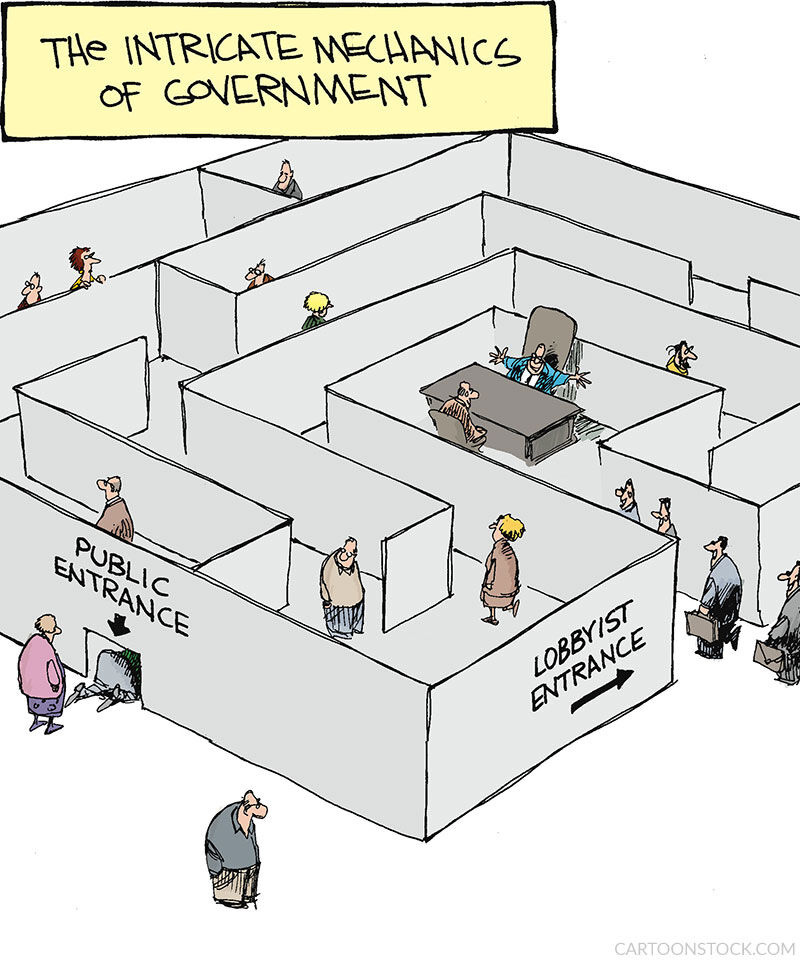
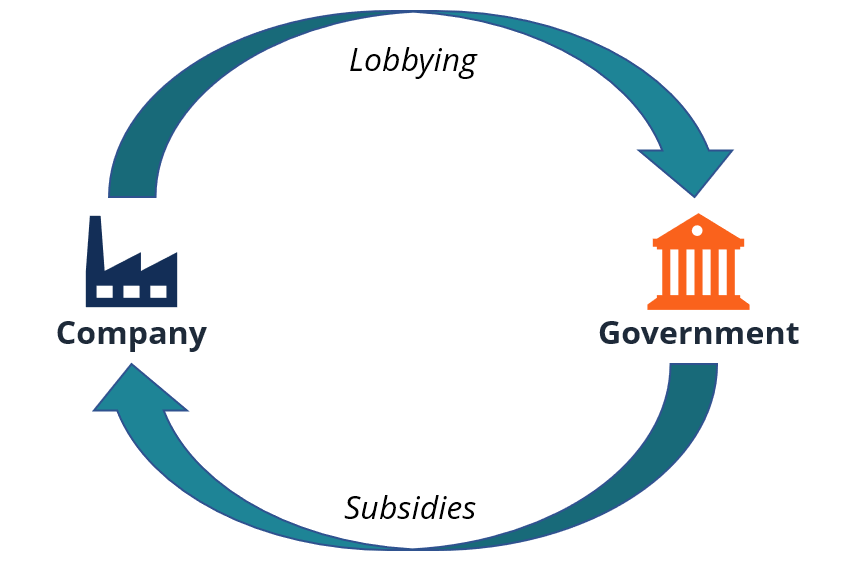
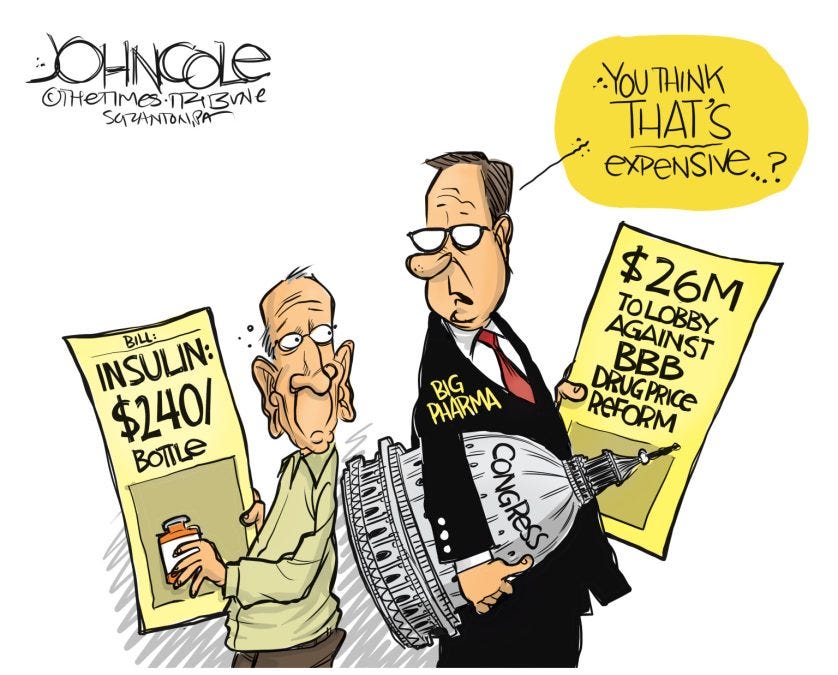

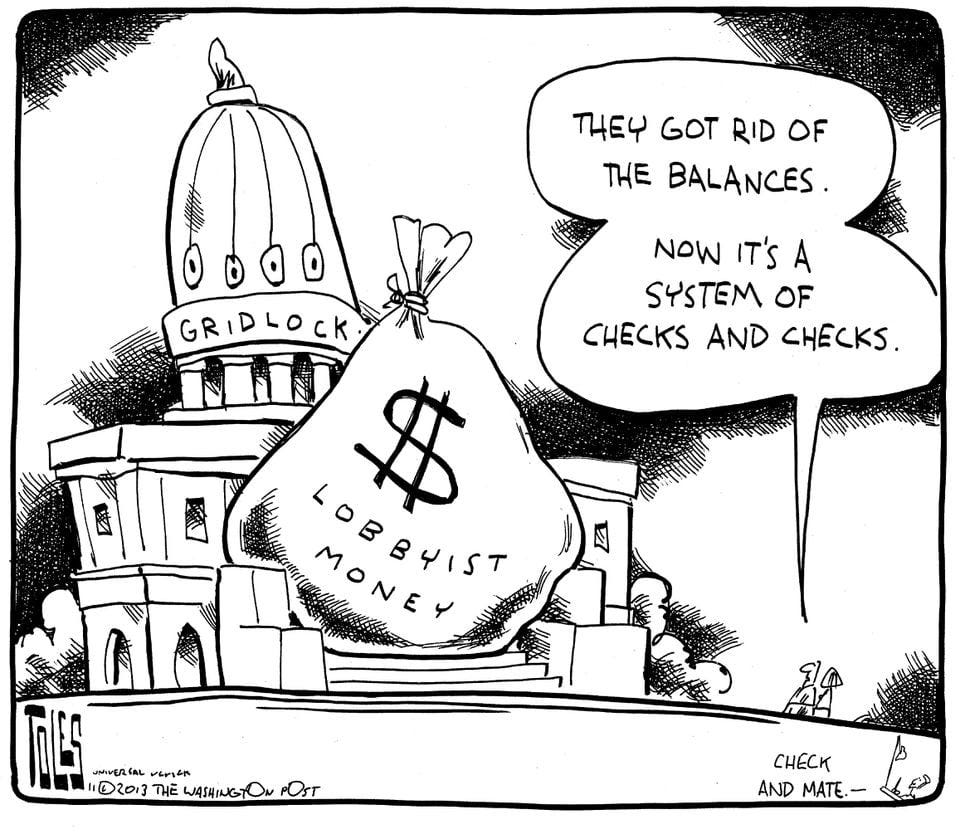
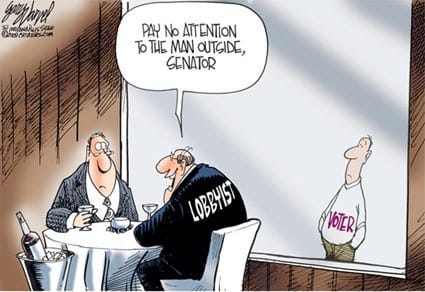
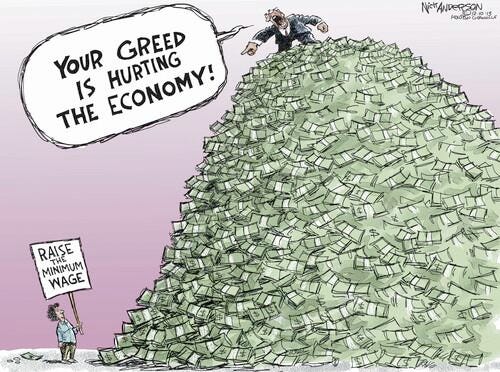
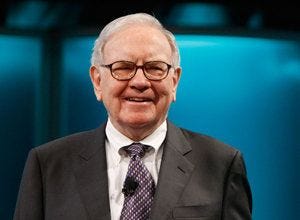

Excellent and Well Explained